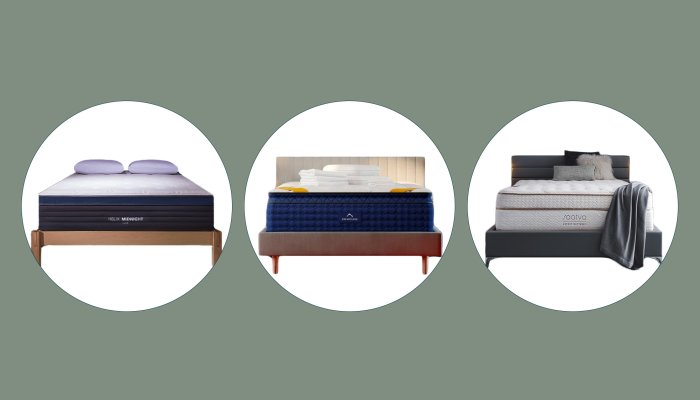

While pillow top mattresses have their benefits, Conrad says they may not be a good fit for everyone.
“In general, they are ideal for side sleepers and the average-sized person,” he explains. “For someone over 250 pounds, most pillow tops won’t have as much support as a traditional mattress.”
Those over 250 pounds should opt for a pillow top mattress specifically designed to hold more weight, such as the Nolah Evolution Comfort+ or the Saatva HD.
Per Lees, “Side sleepers may benefit the most because the extra cushion can spread the pressure over a broader area, helping to relieve pressure points on shoulders and hips in a firm mattress.”
Pillow top mattresses are available in varying thicknesses—and a thicker pillow top can translate to a softer feel. “This can lead to a loss of support for some people, particularly stomach sleepers who already have a higher risk of developing back and neck pain,” Lees says.
Those with back pain or a herniated disc may also want to do their due diligence before picking up a pillow top mattress.
“If you suffer from degenerative arthritis or sciatica from a herniated disc, a pillow top may not offer enough back support, which could result in back stiffness when you wake up,” Conrad explains.








